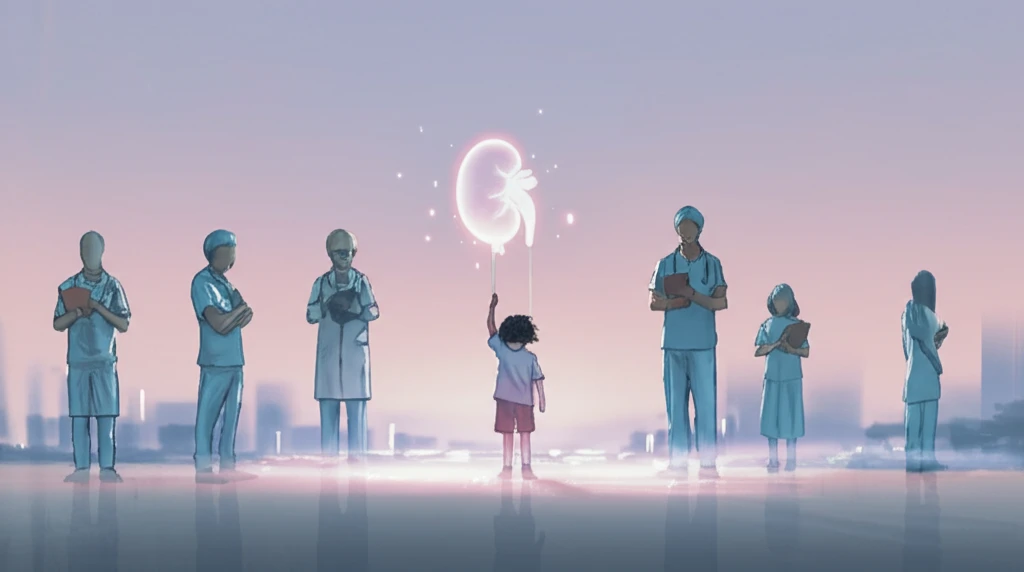
Navigating Palliative Care in Pediatric Nephrology: Why Compassionate Support Matters
"A crucial look at the current state of palliative care for children with kidney disease and how a multidisciplinary approach can improve their quality of life."
Chronic kidney disease (CKD) in children presents unique challenges, demanding a comprehensive approach that extends beyond medical treatment. While advancements have improved survival rates, the impact on quality of life remains a significant concern. Frequent hospitalizations, exhaustive therapies, and side effects can severely impair the well-being of young patients.
Palliative care offers a holistic solution, focusing on alleviating suffering and improving the overall quality of life for children and their families. It's not just about end-of-life care; it's about providing support from the moment of diagnosis, addressing physical, emotional, social, and spiritual needs.
A recent survey sheds light on the current state of palliative care structures within pediatric nephrology in Germany. It highlights the perspectives of a multidisciplinary healthcare team, including physicians, nurses, and psychosocial health professionals, revealing both the potential and the limitations of current practices.
What are the Key Findings of the Palliative Care Survey?

The survey, conducted among members of the German Society of Nephrology and nurse managers of pediatric dialysis centers, revealed a significant gap in palliative care integration. While most respondents recognized the importance of palliative care, the existing structures were deemed insufficient.
- Limited Availability: Only a small percentage of centers have specialized palliative care services.
- Desire for Training: A significant majority of healthcare professionals expressed a desire for further training in palliative care.
- Multidisciplinary Support: The survey emphasized the need for a team-based approach, involving physicians, nurses, and psychosocial health professionals.
- Responsibility Confusion: There was a lack of clarity regarding who should be primarily responsible for providing palliative care.
- Barriers to Integration: Key obstacles included a lack of expertise, inadequate funding, and a shortage of specialized care teams.
The Path Forward: Integrating Compassionate Care into Pediatric Nephrology
The survey's conclusions point to a clear need for action. Integrating palliative care into routine treatment for children with CKD requires a multi-pronged approach. This includes increasing access to specialized palliative care teams, providing comprehensive training for healthcare professionals, and securing adequate funding for these essential services. By prioritizing compassionate care, we can significantly improve the lives of children and adolescents living with kidney disease, ensuring they receive the support and comfort they deserve.
